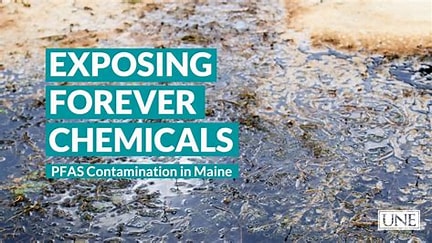
by Bill Schlesinger
Agricultural extension agents in separate counties in Texas and Maine have reported high levels of PFAS (Per- and polyfluoroalkyl) compounds in farmland soils, potentially contaminating groundwater and crops. Made only by humans, PFAS compounds have wide use as non-stick coatings and fire retardants. PFAS compounds are found in wastewater and biosolids, that are used to fertilize agricultural lands. They are known as “forever” chemicals because they do not break down in nature. See: https://blogs.nicholas.duke.edu/citizenscientist/1546-2/
Newly appointed EPA administrator, Lee Zeldin has touted his impending efforts to reduce the regulation of toxic wastes from industry. And by executive order, Trump has paused pending regulation of PFAS emissions to the environment.
I would love to hear the results of a cabinet-level conversation between Zeldin and Bobby Kennedy, Jr., who as Secretary of Health and Human Services has stressed the need to reduce exposure to exotic chemicals in our food and water. As known carcinogens, PFAS compounds should be top on his list, and soil as a source of PFAS compounds in food of greatest concern.
PFAS compounds are part of a larger group of organic fluorinated compounds that are found in waters of the United States. Many organic fluorinated substances derive from pharmaceuticals, such as statins (e.g., Atorvastatin®), which are also excreted by humans into wastewater. But, the PFAS component alone is typically above the threshold for human health effects.
Both the EPA and the Department of Health and Welfare should be guided by the best peer-reviewed science regarding chemicals and our health. Let’s hope that the scientists are still employed by these agencies, and that all science gets the eyes and ears of those who run them.
References:
Ruyle, B.J., E. H. Pennoyer, S. Vojta, and E. Suderland. 2025. High organofluorine concentrations in municipal wastewater affect downstream drinking water supplies for millions of Americans. Proceedings of the National Academy of Sciences 122: https://doi.org/10.1073/pnas.2417156122
Schlesinger, W.H., E.M. Klein, and A. Vengosh. 2020. Global biogeochemical cycle of fluorine. Global Biogeochemical Cycles doi 10.1029/2020GB006722